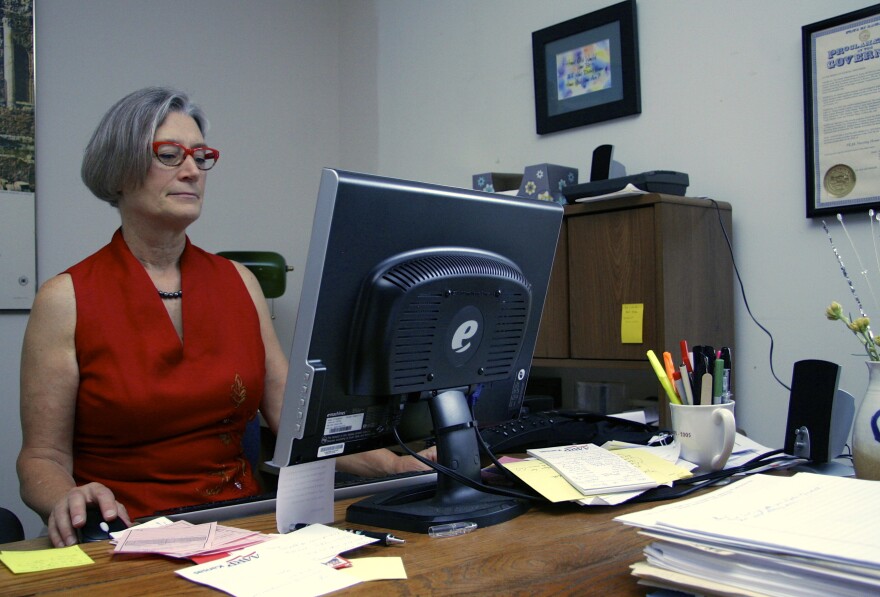Kansas legislators adjourned their regular session and left on a monthlong break without passing a “bed tax” increase that nursing home organizations say is vital to their members.
The organizations believe legislators will act on Senate Bill 457 in the upcoming veto session and provide an infusion of federal cash at a time when nursing homes across the state are struggling with delayed Medicaid reimbursements. In light of the reimbursement problems, the state announced Friday that it will allow nursing homes to apply for partial payments for residents whose Medicaid applications have been pending more than 60 days.
Meanwhile, the organizations that represent them are embroiled in a familiar argument with an advocacy group over whether there should be strings attached to the bed tax money.
Kansas passed the “bed tax” in 2010, levying an extra assessment on skilled nursing beds to draw down more federal funds through Medicaid.
When the tax was extended in 2013, Kansas Advocates for Better Care said the money had not been used as promised to increase the quality of care in nursing homes.
Last week the organization’s executive director, Mitzi McFatrich, was back before the Legislature asking again that the proposed increase to the tax be tied to quality of care metrics.
Specifically, McFatrich’s group would like the state to mandate nursing home staffing levels that allow for 4.5 hours of skilled nursing care per resident per day. McFatrich told the House Appropriations Committee that studies have shown that higher level provides a better quality of life for residents.
“There’s plenty of money in the provider assessment to make that a possibility,” McFatrich said.
Cost concerns
Organizations that represent nursing homes disagreed.
Rachel Monger, director of government affairs for LeadingAge Kansas, which represents nonprofit nursing homes, said the staffing mandate proposed by KABC carries a cost of $245 million.
Cindy Luxem, president and CEO of the Kansas Health Care Association, told the committee many homes already are carrying thousands in unpaid bills due to the Medicaid processing delays.
“That’s a huge problem right now,” said Luxem, whose organization represents for-profit homes.
Luxem previously told a Senate budget committee that nursing homes will close if SB 457 doesn’t pass.
In addition to the financial challenge of the mandate proposed by KABC, a growing demand for beds and short supply of caregivers has nursing home administrators in some parts of the state saying it’s already difficult to find enough qualified staff.
Disagreement over quality metrics
McFatrich’s group has pointed to repeat deficiencies on nursing home inspection reports and the state’s No. 47 ranking on improper use of antipsychotic medication of residents with dementia as evidence that facilities have not used the bed tax revenue to improve care.
Monger told the House committee that the state’s antipsychotic use ranking was flawed because Kansas has more nursing facilities for mental health patients than other states.
“In regular nursing homes, we’ve actually reduced antipsychotic use by 50 percent,” Monger said.
McFatrich said the presence of nursing facilities for mental health should not matter because the rankings account only for improper use of the antipsychotic drugs.
Angela de Rocha, a spokeswoman for the Kansas Department for Aging and Disability Services, said the 10 specialized facilities do make a difference in the rankings that come from the federal Centers for Medicare and Medicaid Services.
The rankings rely on a precise diagnosis, she said, so residents with a “schizophrenia-like condition” treated with antipsychotics still would be counted against the state.
“As a result, Kansas’ numbers are skewed,” de Rocha said.
De Rocha said facilities that use the medications do so because they are prescribed by the residents’ individual doctors and that efforts to curb improper use are getting results.
“We are still ranked 47th, but we have reduced inappropriate usage by 21.9 percent,” de Rocha said. “It is fair to say we are making progress.”
Andy Marso is a reporter for KHI News Service in Topeka, a partner in the Heartland Health Monitor team. You can reach him on Twitter @andymarso



